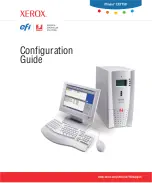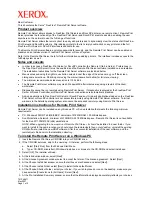
●
The BIOS Setup menu presents the applicable NPSx options based on the underlying model number. A change to the current
NPSx is communicated to pre-BIOS firmware to take effect on the next boot. The default NPS setting is 1.
●
During boot, if the selected NPSx option is not allowed for the model number (for example, if the processor model number
changes between reboot), system will halt at the end of POST with UEFI0388 message displayed. On the next reboot, the
system will fall back to NPS1 default setting.
●
During boot, if the preferred interleaving for the current NPSx is not possible due to memory configuration (for example, the
memory population is inconsistent with the preferred interleaving), BIOS shows a warning message UEFI0391.
NOTE:
System is functional when UEFI0391 message is displayed. However, the system may not be configured for
optimal performance.
NPS system optimization
Optimal system configuration is dependent on the processor model, memory configuration, and NPS settings. Match the
memory configuration with the NPS settings available for the processor.
Table 17. Supported NPS modes by Processors
Model Number
NPS modes supported
7742
4, 2, 1, 0
7702
4, 2, 1, 0
7662
4, 2, 1, 0
7642
4, 2, 1, 0
7552
2, 1, 0
7542
4, 2, 1, 0
7532
4, 2, 1, 0
7502
4, 2, 1, 0
7452
4, 2, 1, 0
7402
4, 2, 1, 0
7352
4, 2, 1, 0
7302
4, 2, 1, 0
7282
1, 0
7272
1, 0
7262
4, 2, 1, 0
7252
1, 0
7F72
2, 1, 0
7F52
4, 2, 1, 0
7F32
4, 2, 1, 0
7H12
4, 2, 1, 0
Table 18. Optimal NPS configuration
Number of
DIMMs per
processor
NPS
0
1
2
4
1
X
2
X
3
X
4
X
5
X
66
Installing and removing system components
















































